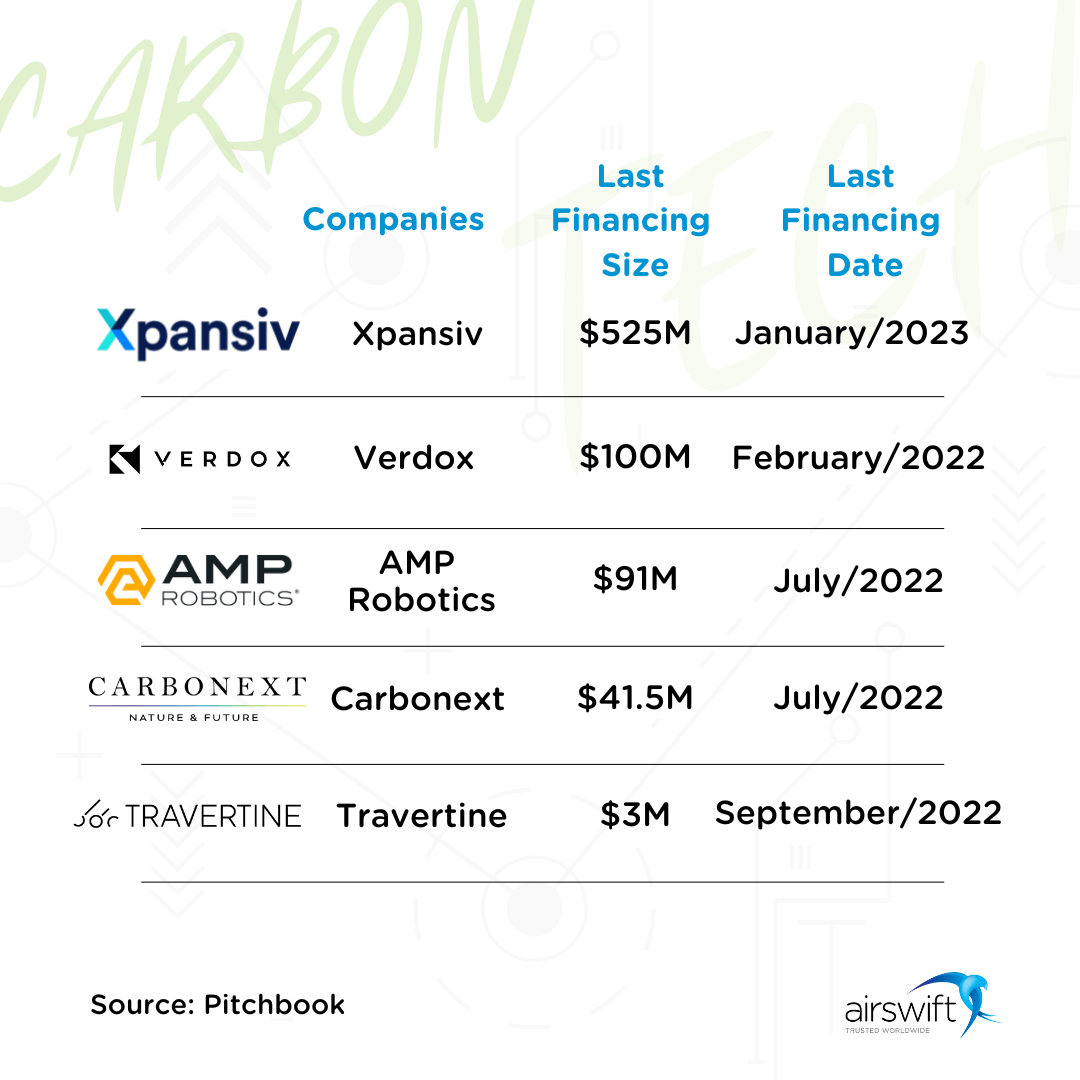
By
Raphael Santos
January 18, 2023
Updated
January 23, 2025
With advancements in technology and legislation, the carbon tech sector is experiencing more possibilities
As the world moves towards restoring our environment and achieving carbon neutrality, several countries are taking measures to reduce their carbon emissions by using creativity, technology and cutting-edge science.
In this article, we will explore how three different markets in the carbon tech landscape have deployed creative solutions to tackle global warming. From robotics to trading platforms, we will explore all the means by which these modern solutions are pioneering carbon technologies and setting new challenges for climate tech companies.
1. Recycling with AI-powered robotics
The traditional method
Recycling plastics and metals has always been a challenge due to the complexity of the process. Identifying and separating items from a mix of materials is a labour-intensive process that is essential to preventing the recycling of impure materials.
Historically the sink-float method has been the go-to procedure for separating materials. This involves the use of water to separate particles based on their density. In other words, items with a higher density will sink while those with a lower density will float. However, the difficulty is in adjusting it to various densities or distinguishing between plastics of similar density.
The innovation of automated recycling
To solve this issue, AI-powered robotics have been developed to help in the recycling process. These robots use machine learning algorithms to identify and separate materials with an accuracy rate of up to 97%. Not only is this much faster than manual sorting, but it also reduces human error and increases efficiency.
We now have companies like AMP Robotics, which have created a platform that can learn to recognise materials inside mixed recycling streams, based on criteria like color, texture, shape, size, pattern, and labels.
2. Carbon offset trading platforms

Source: Frame Stock Footage/Shutterstock
Through carbon trading platforms, companies and individuals can purchase carbon offsets to help reduce their carbon footprint. This helps create a market that supports green projects, encouraging companies to invest in clean energy solutions.
Data analysis plus carbon neutrality
These offsets can be in the form of projects like reforestation, renewable infrastructure implementation and many others. Plus, these platforms allow companies to track their emissions in real-time and monitor their progress.
Carbonext is a remarkable company in this domain with its own carbon offsets sourced from initiatives focused on forest safeguarding and monitoring in Brazil.
Another example that we can highlight in this niche is CBL Markets (a company part of the Xpansiv group), which has created an online marketplace for emissions trading. It provides a secure platform where buyers and sellers of carbon credits can connect, allowing them to buy and sell allowances in real-time. The platform also allows users to access data on the pricing and availability of carbon credits from around the world.
3. Energy-efficient carbon capture
We have broken down all the essential details about carbon capture technologies in one of our articles. By capturing CO2 from power plants, industrial processes and other sources prior to its release into the atmosphere, these technologies can help lower emissions of greenhouse gases in the air.
The captured CO2 can then be used for various applications such as enhanced oil recovery (EOR), underground storage or conversion into valuable products like fuels or chemicals.
Advanced electrochemical approaches
Technology has been advancing to make energy use more efficient through modified chemistries and new techniques. Recent advancements of chemical approaches focus on two improvements: lowering the temperatures needed to replenish the chemistry, and using pressure or acidity/alkalinity (called electrochemical or pH-swing replenishment) instead of temperatures.
In the last few years, electrochemical approaches have gained momentum and startups such as Verdox and Travertine have been created to explore this new technology.
The acceleration of these emerging companies
The emergence of new companies in the carbon tech space is a testament to the industry’s potential. As mentioned above, companies such as Verdox and Travertine are pioneering electrochemical approaches, while others like AMP Robotics are using AI-powered robots to recycle materials.

These companies got a substantial amount of funding to speed up their operations. Xpansiv is the parent company of CBL Markets, the world's leading spot exchange for carbon credits, as listed in this article. In its most recent round of venture capital funding, Xpansiv raised over half a billion dollars, making it the top player in carbon offset trading and associated environmental products.
Carbonext is also helping users measure their carbon footprint and take action to reduce it. On July 11, 2022, the Brazilian company secured an investment of $41.5 million from Shell. And in September, Carbonext became part of the Google for Startups Accelerator program.
Overall, these three innovative markets are pioneering carbon tech, enabling companies and individuals to reduce emissions and invest in green tech projects. By using AI-powered robots for recycling materials, trading carbon credits on specialised platforms and developing energy-efficient carbon capture technologies, we can make a significant movement towards reaching net zero.
The USA’s IRA is a big step toward driving these innovations
The Inflation Reduction Act (IRA) is the most significant climate agreement at the federal level ever. The updated reconciliation package is an outcome of talks from President Biden's Build Back Better Act, and will help the US move much closer to its net zero goals.
By modifying the 45Q tax credit, the IRA enables carbon removal startups to benefit and provides a larger group of project developers access to this incentive.
The tax credit allows companies to receive $50 per metric ton of carbon dioxide that is stored, and $35 for captured and utilised. This could be a major game-changer in the way companies invest in green projects and reduce their emissions.
This apparent domestic action has the potential to trigger a ripple effect that could impact the entire global economy. For instance, the cost of wind and solar energy will be even more appealing. This can lead to a domino effect, with more and more technologies becoming cheaper and more accessible in emerging countries.
Furthermore, the tax credit could also encourage other countries to implement similar policies. And with this new incentive, more startups are likely to emerge as they seek to develop innovative carbon technologies and offset their emissions.
Carbon tech is within the green tech revolution

Source: Frame Stock Footage/Shutterstock
These companies are part of a green tech revolution that is quickly gaining traction. The acceleration of venture capital investments, hi-tech development and supporting policies like the IRA can ignite this revolution worldwide.
In the coming years, we'll see more and more companies invest in carbon tech and develop innovative solutions to reduce emissions and offset their carbon footprints.
This is why we’ve conducted an in-depth study of the green technology landscape to help identify the emerging opportunities and the workforce needed to support it.
Our recent whitepaper, "Green Tech Talent Required to Boost Net Zero", focuses on the upcoming trends about this entirely new industry as provides insights that can help businesses around the world transition towards a more sustainable economy.
Download it for free today and get access to plenty of in-depth data and valuable insights from our expert contributors.

